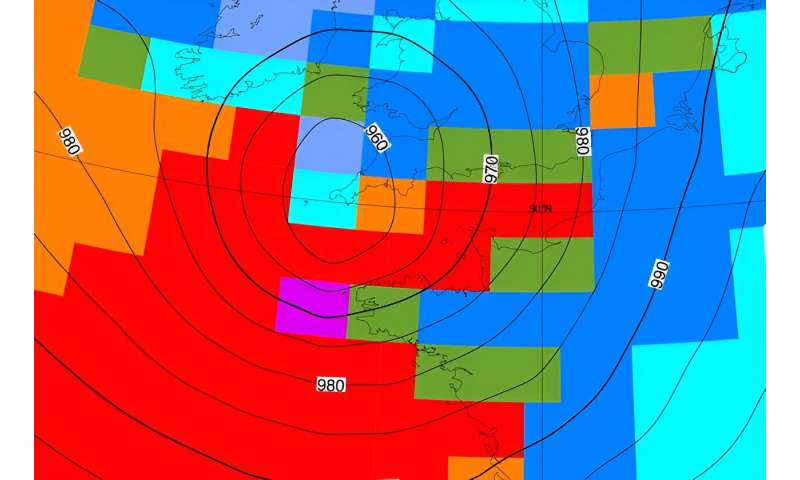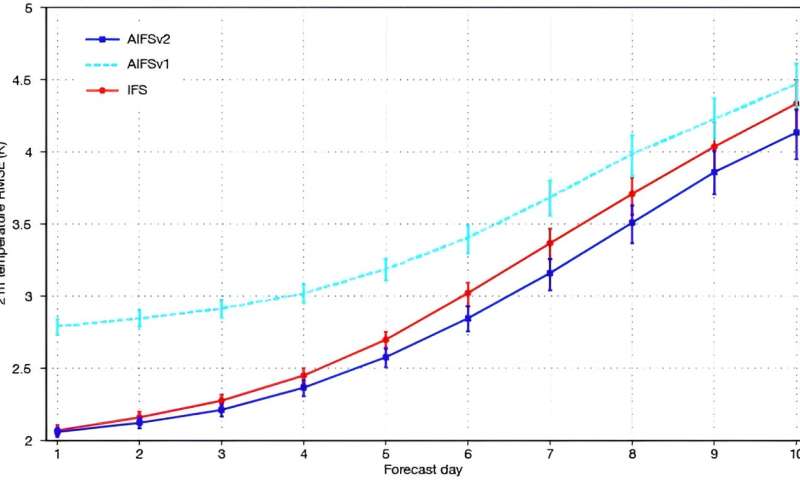Proposal to pool resources to intensify use of AI in weather prediction

Over the past two ECMWF Council sessions, in June and December 2023, ECMWF's Member States have approved two major initiatives aimed at intensifying the development, testing and implementation of machine learning across their weather forecasting chains.
The project approved in June looks specifically at increasing resources within ECMWF to broaden the scope of its work on machine learning (ML), from intensifying ongoing work on a hybrid model mixing conventional and ML methodologies, to developing a fully data-driven forecasting system. The project approved in December takes an approach which will see the Center's Member States join forces to handle aspects of ML applied to weather prediction where they themselves have most expertise.
The two complementary projects, running side by side and in full collaboration, recognize the potential of machine learning in weather prediction and build upon substantial activities in this field both at ECMWF and within European meteorological services.
Only a few months after the approval of its proposal in June, ECMWF released its new data-driven model, the AIFS. While the AIFS already shows promising results, it uses ML technologies in only part of the forecasting process, and a lot of work is still required to develop a full forecasting chain solely using ML. This work, as well as building upon what has already been achieved, will be part of ECMWF's four-year project and the Member States' distributed project.
Norway and Switzerland have taken joint lead of the latter project and will coordinate its development. Roar Skålin, Director General of Met Norway, and Christof Appenzeller, Director of MeteoSwiss, said in a joint statement:

"While many ECMWF Member States are already involved in machine learning within their own meteorological services, it is important that we continue and even intensify the collaborative approach. This will be key to Europe's leadership in weather prediction. Machine learning has a huge potential to improve our forecasts and services and will allow us to better protect all citizens from the impact of severe weather. From the recent and very promising results we are seeing now from our own experiments and ECMWF's AIFS on a global scale, it is clear that this is a direction we must forcefully invest in."
Europe's involvement in applying machine learning to weather and climate prediction does not end there. The European Union's Destination Earth initiative has just been granted substantial extra funding to specifically intensify the use of machine learning towards the development of an ML-based Earth system model that will support quantifying uncertainties of the Earth system digital twins and enhancing their interactivity capabilities.
Speaking on behalf of the consortium leading the development of the Weather-Induced Extremes digital twin, Marc Pontaud, Director of Research at Météo-France, said, "The importance of the digital twins and the positive impact that they can bring to society cannot be overstated. The additional funding to focus on artificial intelligence offers us game-changing improvements to our alert and advisory systems and will strengthen the ability of European meteorological services to forecast extreme weather events in a new efficient way and benefit impact sectors."
While the AIFS results and those from others around the world are impressive, it is important to stress that much more work is required to optimize our use of ML. The next few months and years will see a push towards targeting all parts of the forecasting chain as well as adding the probabilistic dimension which forecasters need to assess all possible future weather scenarios, as well as their likelihood. A lot of work is still needed before ML models can safely and accurately complement conventional models, and it will certainly be a challenge to get it right. But this is a challenge that Europe has decided to take on, and to lead on.
Provided by European Centre for Medium-Range Weather Forecasts (ECMWF)